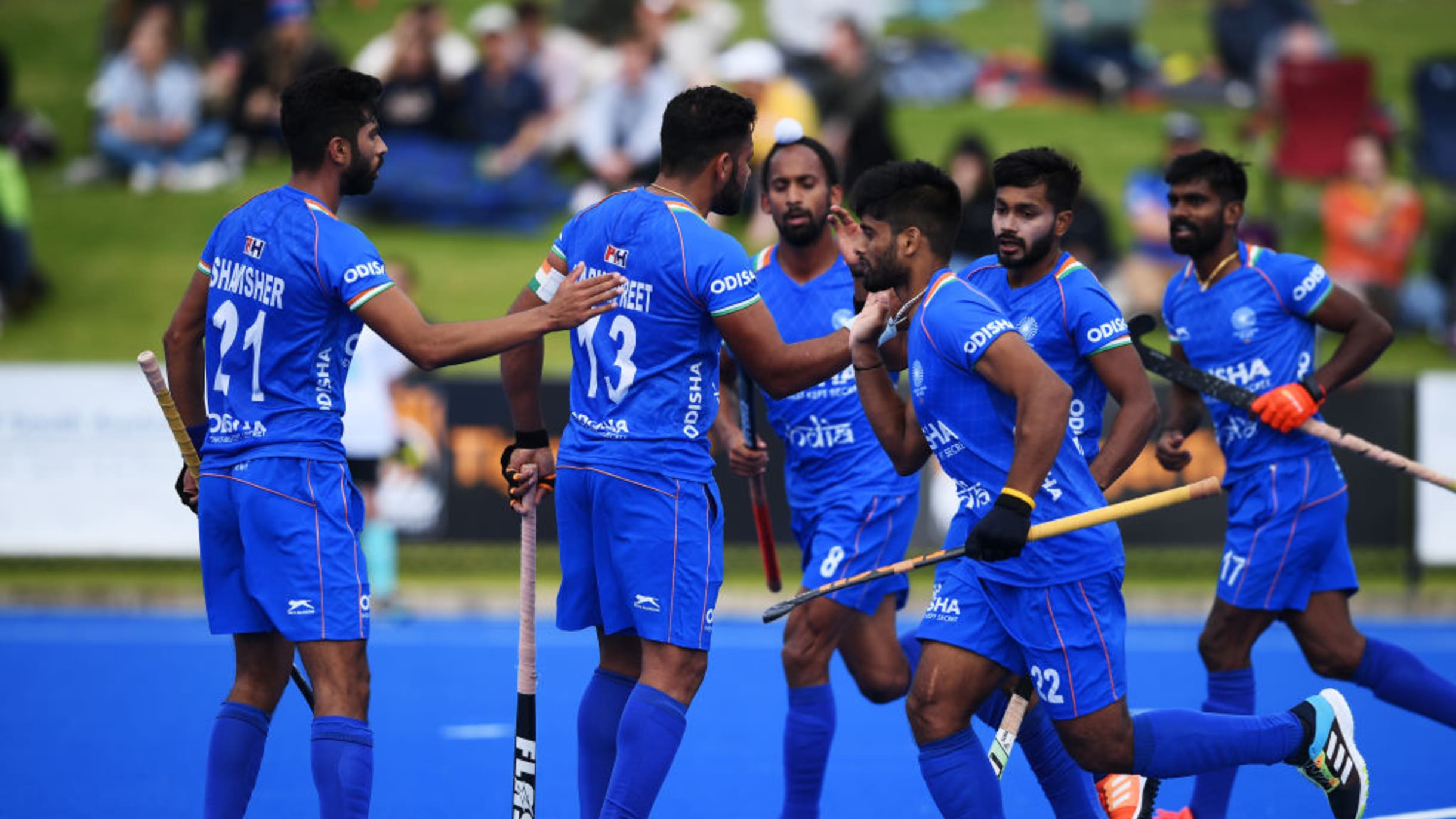DOUALA, Cameroon (AP) — Off the coast of West Africa, the Trondheim is a common sight: a soccer industry-sized ship, plying the waters from Nigeria to Mauritania as it pulls in tons of mackerel and sardines — and flying the purple, yellow and eco-friendly flag of Cameroon.
But apart from the flag, there is virtually nothing at all about the Trondheim that is Cameroonian.
At the time, it operated less than the identify of the King Fisher and sailed below the flag of the Caribbean country St. Vincent and the Grenadines. Then it switched to Ga, the previous Soviet republic. It was only in 2019 that it began flying the banner of Cameroon.
The Trondheim is one of several vessels reflagged beneath Cameroon’s developing fishing fleet that have transformed names and been accused of illicit actions at sea. Now, an investigation by The Involved Press discovered, 14 of these vessels are owned or managed by providers centered in European Union member states: Belgium, Malta, Latvia and Cyprus.
___
This tale was supported by funding from the Walton Family members Basis and the Pulitzer Middle on Crisis Reporting. The AP is only accountable for all information.
___
The AP examined over 80 ship profiles on MarineTraffic, a maritime analytics service provider, and matched them with enterprise documents as a result of IHS Maritime & Trade and the Global Maritime Corporation or IMO.
“They’re fascinated in the flag. They’re not interested in Cameroon,” reported Beatrice Gorez, coordinator for the Coalition for Reasonable Fisheries Arrangements, a team of companies highlighting the impacts of EU-African fisheries arrangements that determined the current link among firms in EU member states and the Cameroon fleet.
Every of the vessels transformed flags to Cameroon among 2019 and 2021, nevertheless they had no obvious connection to the region and did not fish in its waters. The Trondheim and at least 5 some others have a record of unlawful, unreported, and unregulated fishing, in accordance to a report by the environmental team Greenpeace. The two the vessels and their owners conceal what they catch, wherever it goes and who is economically benefiting from it, maritime and business data demonstrate.
In new decades, Cameroon has emerged as 1 of quite a few go-to nations for the broadly criticized “flags of convenience” technique, less than which companies can — for a cost — register their ships in a international nation even although there is no website link concerning the vessel and the country whose flag it flies.
The ships are intended to abide by that nation’s fishing agreements with other international locations. But specialists say weak oversight and enforcement of fishing fleets by countries with open registries like Cameroon give transport companies a veil of secrecy that allows them to mask their functions.
That secrecy, the specialists say, also undermines worldwide attempts to sustainably manage fisheries and threatens the livelihoods of thousands and thousands of people in regions like West Africa. Cameroonian officers say all the ships that fly its flag are lawfully registered and abide by all of its guidelines. But regulators in Europe just lately warned the place that its incapability to deliver oversight of its fishing fleet could lead to a ban on fish from the state.
Cameroon’s flagged fishing fleet is minuscule when compared to nations around the world such as Liberia, Panama or the Marshall Islands. But the swift adoption of the country’s flag by some shipping and delivery companies accused of unlawful fishing is raising alarm.
“This is a significant situation,” said Aristide Takoukam, a biologist and founder of the African Maritime Mammal Conservation Organization, a non-gain primarily based in Cameroon that screens illegal fishing. “I don’t believe Cameroon is equipped to keep an eye on these vessels that are traveling Cameroon flags outside the house its waters.”
A Background OF LAX OVERSIGHT
Cameroon has extended been criticized for lax oversight of its fishing fleet. A review printed very last 12 months in the journal African Protection documented deep-rooted corruption in the ministries that oversee the fishing industry. In that similar yr, the European Commission issued a “yellow card” to the country, warning it to move up its actions against unlawful fishing.
The commission determined a collection of shortcomings, which includes that the nation had registered a number of fishing vessels — some of them accused of unlawful fishing — less than its flag in the previous several years, raising concerns about the nation’s ability to management and observe the pursuits of its fleet.
If Cameroon does not comply immediately after its initial warning, the fee can situation a “red card,” effectively listing them as a non-cooperating place. And it can ban their fish solutions from coming into EU markets.
The commission’s report named a dozen fishing vessels registered concerning 2019 and 2020 whose names ended up not provided to them by Cameroonian authorities. At the very least 8 of the 12 determined vessels are managed or owned by European organizations. The AP found six far more vessels not incorporated in the EU report.
The European Commission did not react to the AP’s requests for remark.
Information from two maritime intelligence corporations, Windward and Lloyd’s Listing Intelligence, reveals an accelerated progress in the number of vessels that sail beneath the Cameroonian flag in the past four a long time, from 14 vessels in 2018 to additional than 129 in 2022. According to the Environmental Justice Basis, Cameroon’s fishing potential is now nine instances larger than it was ahead of 2018.
When the variety of flagged ships has developed, the sources to monitor them have not stored speed, a critique of price range documents exhibit. The documents present that the finances for the Ministry of Livestock, Fisheries and Animal Industries’ management and supervision of fisheries declined 32 percent from 2019 to final calendar year.
While nations around the world have a ideal to allow for vessels to adopt their nationality and fly their flag, Posting 91 of the United Nations Convention on the Law of the Sea involves a “genuine link” to be founded among a vessel and its flag condition.
Inspite of this, overseas vessels in countries with open registries typically have small to no connection with their flag states. The accountability falls on the flagged country to handle operations of the vessels in their fleet, which includes any unlawful exercise induced in other nations’ waters or on the significant seas.
“The pretty place of flags of usefulness is that it is effortless, it’s low-cost, you can do it speedily, and they are not automatically searching at your history of compliance,” said Julien Daudu, senior campaigner at the Environmental Justice Basis, a British NGO focusing on environmental and human rights concerns.
Paul Nkesi, a agent of the agency that oversees fisheries, the Ministry of Livestock, Fisheries and Animal Industries, states that though the authorities acknowledges the want to stage up its surveillance of industrial trawlers, all vessels are registered lawfully in Cameroon.
All of the 14 EU-joined vessels registered to Cameroon are huge trawler ships at least 100 meters very long none run in Cameroonian waters. Monitoring knowledge present the ships journeying among ports in Mauritania, Angola, South Africa, and Namibia.
Continue to, for the local fishermen who previously compete with the Chinese-owned vessels in their waters, the strain of a escalating fleet is generating considerations that Cameroon will be entirely overpowered by international-owned vessels.
“Their business is only fishing they can fish additional than 1,000 area boats. If people bigger (global) vessels enter here, we’ll be truly influenced,” mentioned Simeon Oviri, a neighborhood fisherman in Youpwe, a coastal space in the vicinity of Douala, Cameroon’s greatest town.
Maurice Beseng, a investigate associate at the College of Sheffield’s Institute for Sustainable Advancement and going to fellow in maritime safety at Coventry University, stated ships working the flags of convenience surface to be making use of the process to circumvent the restrictions on fishing imposed by the European Union.
DIFFERING SETS OF Rules
The EU has fishing agreements with various countries, and EU-flagged vessels are subject matter to stricter fishing limitations all around the earth, such as in West Africa. But ships flagged to other nations around the world outdoors the union are not matter to the same fishing limitations.
For example, information from World Fishing Check out, which employs satellite details and machine studying to observe action at sea, demonstrates most of the EU-affiliated, Cameroonian-flagged trawlers look to be fishing in Mauritania, a state that has one particular of the most strong fishing agreements with the EU.
Underneath this settlement, trawlers fishing with an EU flag have a total fishing capability of 225,000 tons for a optimum of 19 vessels. After that quota is satisfied, all fishing exercise has to stop.
But international vessels not under any agreement can fish in Mauritania under a free license. For the Cameroon-flagged trawlers, this signifies they can go above the EU limit with no owning to land their catches in Mauritania.
The exact same goes for Gambia, where by industrial fishing vessels flagged to Cameroon may perhaps fish for any species outdoors the 7-mile nautical restrict. Nonetheless, if the vessel is flagged to an EU member state, the vessel can only fish for tuna and hake, according to current sustainable fisheries partnership agreements among the small West African nation and the EU.
“They are ready to use that as a loophole to go further than the agreements,” reported Charles Kilgour, director of fisheries examination for Global Fishing Check out.
The trawler vessels capture smaller fish species, such as horse mackerel, sardinella and anchovy, which recent inventory assessments have revealed are overfished together the Atlantic coast of West Africa.
These species are a worthwhile and important foods source across the region, with an believed 6.7 million individuals dependent directly on them. Sardinella in specific are regionally eaten in the area as an affordable resource of protein and nutrition. At this time, the Food items and Agriculture Organization lists most of the focused species as either thoroughly exploited or overexploited.
Whilst it’s unclear in which the fish goes right after being unloaded in ports, Beseng notes that the fish focused by these vessels normally enter EU marketplaces to be applied as fish meal and fish oil.
“Their effect is substantial. These are species that the community populace depend on,” Beseng explained. “The increase in capture has enhanced foodstuff safety difficulties for coastal communities.”
Whilst environmental and maritime security experts applauded the EU for issuing the yellow card to Cameroon for the lax oversight of its fishing fleet, they say not adequate is staying carried out to focus on the EU-primarily based providers that are the culprits.
“If you have European companies that are operating beneath this flag,” Daudu mentioned, “you should also reveal exemplary habits by likely just after your own nationals.”
But just getting the path can be a complicated — and often insurmountable — problem. “It’s really like an ink bottle. You can get so far, and then at some stage it results in being totally opaque,” Gorez reported. “It makes it seriously complicated to locate information on who owns these vessels.”
THE Companies
The AP tracked the 14 vessels finally to 4 energetic companies: Ocean Whale Co. Ltd in Malta, INOK NV in Belgium, Sundborn Management Ltd in Cyprus and Baltreids SIA in Latvia.
— Ocean Whale operates several previous Soviet trawlers, including a ship previously identified as the Coral that has modified the flag less than which it operates seven occasions due to the fact 2005. A short while ago, it switched to the Cameroon flag right after two months under the Russian flag.
Other ships in the company’s fleet were being involved in a 2010-12 fishing license scandal in Senegal. Less than an agreement that was neither authorized by regulation nor publicly disclosed, the fisheries ministry granted quite a few of its vessels licenses to catch small fish that have been in danger of remaining overfished. The firm and the minister denied wrongdoing.
The company did not respond to the AP’s requests for comment.
On its website, the Ocean Whale Co. explained it catches fish in Mauritania, Guinea-Bissau, Angola, Namibia, and that “the organization is only engaged in lawful fishing functions less than the licenses issued by the coastal States and strictly adheres to all applicable environmental laws.”
— One more group of ships registered to EU organizations and lately flagged to Cameroon have been also named in the Senegalese fishing scandal. Information from the IMO, the Maritime & Trade databases and the Russian maritime sign up of transport identifies the fleet’s owners as numerous firms in Cyprus and Belgium, with just about every in the long run managed by Sundborn Administration Ltd, a corporation registered in Cyprus and INOK NV, a corporation registered in Belgium.
Both of those INOK and Sundborn Administration present vessel registration products and services. Between them: picking out a “flag of usefulness and a ship register for a vessel,” in Malta, Cyprus, Panama, Belize and other countries.
Neither firm responded to requests for reviews from the AP.
Belgium’s Division of Agriculture and Fisheries explained it has been contacted by the European Commission about vessels managed by INOK that have reflagged to Cameroon in between 2019 and 2020 but said it couldn’t remark on ongoing investigations.
— Baltreids Ltd, a Latvian fishing company founded in 1998, manages 5 Cameroon-flagged vessels. The organization framework consists of two other holdings listed as official owners of the vessels in 2021, Limmat Inter SA, primarily based in the Seychelles, and Oceanic Fisheries NB Ltd, centered in Canada.
Baltreids has been accused of a amount of suspicious pursuits, together with insurance plan fraud and illegal fishing in the Atlantic Ocean. A 2020 Canadian Broadcasting Corp. investigation identified that Oceanic Fisheries N.B., was flagged by world banking companies for much more than $31 million in suspicious funds transfers, in accordance to paperwork shared with the Global Consortium of Investigative Journalists and other news companies as aspect of the FinCEN Documents.
When seeking to keep track of down a physical presence of the firm in Canada, the CBC strike a dead finish.
The Latvian IUU One Liaison Workplace, the team that performs with the EU Commission to control IUU fishing in Latvia, told the AP that the Marshal Vasilevskiy was excluded from the Latvian Ship Sign up in November 2019, when the ship reflagged to Cameroon, and the Kaptian Rusak was never registered underneath the Latvian flag. In its place, the vessel is listed as owned by Fishing Company SA, a business dependent in the British Virgin Islands.
IMO details lists possession of the five Cameroon-flagged vessels owned by possibly Baltreids Ltd, Limmat Inter SA or Oceanic Fisheries NB Ltd, efficient amongst 2019 and 2021. The New Brunswick company register implies that Oceanic Fisheries N.B. has been inactive given that October 2021.
Baltreids denied ever obtaining one-way links to Oceanic Fisheries N.B. or to engaging in any illegal fishing or cash laundering to the CBC. In response to the AP, the firm claimed it presently owns two vessels registered in Latvia.
UPPING THE ACCOUNTABILITY
According to Gorez, the timing of the ships’ reflagging to Cameroon in current several years seem to correspond with the 2017 adoption of the Sustainable Administration of Exterior Fishing Fleets , a regulation adopted by the European Parliament aimed to keep track of EU vessels that function outside the house EU waters.
The regulation necessitates fishing vessels to deliver information regarding their operations’ sustainability and legality before their EU member point out can challenge them an authorization to fish in the waters of third international locations.
“This regulation is really attempting to capture these fellas, but as before long as it turns into much too sophisticated, then the easy way out is to alter the flag,” Gorez explained. “It’s like when you try out to catch soap with your hands. It slips and goes somewhere else.”
Since 2010, the EU has incorporated other provisions to make its nationals much more accountable for fisheries operations, no matter of country or vessel flags — most notably by penalizing EU nationals who engage in or guidance illegal or unregulated fishing any place in the globe, below any flag.
But it is up to the member states to handle the difficulty. Gorez claims the states associated in this make a difference — Latvia, Malta, Belgium and Cyprus — have so considerably shown minimal desire.
“We can see the duplicity of the EU in terms of their effort to struggle IUU fishing. They’ve come up with good laws, but when you go deep into how this is carried out in follow, you see that there are a large amount of loopholes,” Beseng claimed.
Aspect of the SMEFF regulation is to manage a database which includes information on the advantageous proprietors of functions by vessels flagged in an EU member point out. As of now, the facts stays confidential.
“How can you assume an official in a distant country that sees a vessel coming to be equipped to easily retrace the full record of the vessel by himself if the previous flag state does not put that facts on the internet?” stated Daudu. “It would charge a great deal of time. It would get a great deal of verification. Sometimes it’s so nicely concealed that you cannot even discover data.”
______
Get in touch with AP’s worldwide investigative crew at [email protected] or https://www.ap.org/recommendations/




More Stories
Why You Should Start Playing Darts
Memorial to man instrumental in developing Hempfield soccer moving to different park after township-county tiff
AL West Primer: Texas Rangers